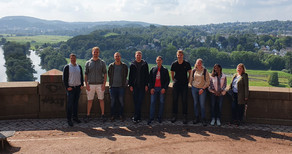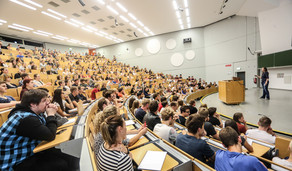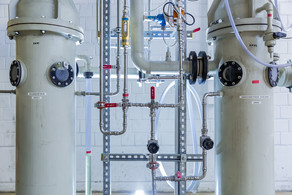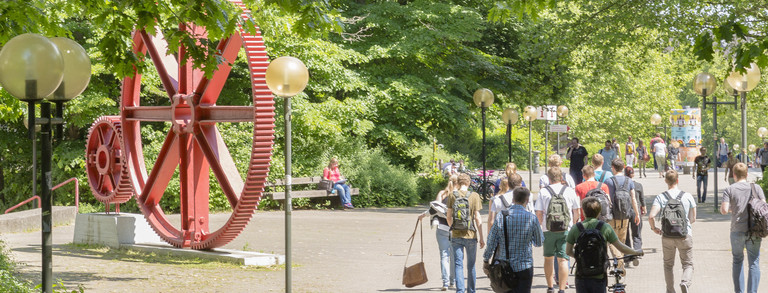Carsten Buchaly
Short Presentation
Carsten Buchaly studied Chemical Engineering at the TU Dortmund University. In 2003, he graduated in Dortmund with a diploma thesis entitled “Phase interactions in turbulent gas-solid flows”. The scientific activities in his Ph.D. were focussed on experimental investigation, analysis and optimisation of hybrid separation processes. For his thesis on this subject he received the "EFCE Excellence Award in Process Intensification 2009". Since March 2008, Carsten is working as a process engineer in the competence center “Conceptual Design” at Bayer Technology Services, Leverkusen.
Member of research staff at the laboratory of fluid separations until December 2007 in the field of reactive distillation.
PhD Thesis
Experimental Investigation, Analysis and Optimisation of Hybrid Separation Processes
I worked on modelling, simulation and process analysis of a hybrid separation process, the combination of reactive distillation with membrane separation. The application is illustrated by the heterogeneously catalysed n-propyl propionate synthesis from 1-propanol and propionic acid. The membrane module is located in the distillate stream of the reactive distillation column in order to selectively remove the produced water without use of entrainers. For the stand-alone reactive separation process, the simulation results with a non-equilibrium model are in good agreement with experimental data obtained in a pilot-scale column. Additionally, a comparison of the most common modelling depths, namely the non-equilibrium model with Maxwell–Stefan equations, the equilibrium model taking into account reaction kinetics and the equilibrium model assuming chemical equilibrium, is presented. Vapour permeation experiments using Sulzer Pervap™ 2201(D) have been performed in a pilot-scale membrane plant in order to determine the separation characteristics for the dewatering of the non-ideal binary 1-propanol–water mixture. A first process analysis of the combined unit operations shows the influence of structural and operational parameters on the performance of the feasible hybrid process.




